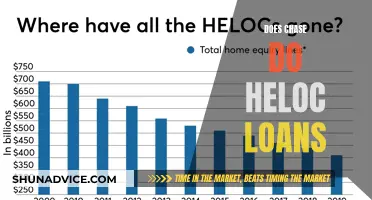
CommonBond ended its student loan program on June 1, 2022, and now focuses on loans for solar panels. However, it still supports existing borrowers. While CommonBond does not offer income-based repayment plans, it does offer forbearance to students who encounter economic hardship after graduation. Forbearance is a safety net that allows borrowers to negotiate with the lender based on hardship. Interest accrues during forbearance, and it is marked on the borrower's credit report. Deferment, on the other hand, is based on the loan's terms, which the borrower must qualify for. Borrowers who are unemployed or unable to find full-time employment for up to three years may be eligible for the unemployment deferment program.
What You'll Learn
- CommonBond ended its student loan program in 2022
- CommonBond offers forbearance to students who encounter economic hardship after graduation
- Unemployment deferment is available for those who are unemployed, actively seeking employment, and can prove they are part of an employment agency
- Forbearance is a negotiation between the lender and borrower based on hardship
- Interest accrues during deferment and is capitalized at the end of the period

CommonBond ended its student loan program in 2022
The company formally announced in June 2022 that it would expand into lending for people wanting to buy and install solar panels on their homes. This decision was based on the observation that many of its student loan customers buy a house within a few years of refinancing with CommonBond. Additionally, the company expressed a strong interest in helping curb climate change.
Prior to its exit from the student loan business, CommonBond offered unique perks to its borrowers, such as a dedicated advisor termed a Money Mentor, and a partnership with nonprofit Pencils of Promise, which provided schools, teachers, and technology to thousands of students in Ghana. The company also provided internship programs, a summer career development series, and trips to Ghana.
CommonBond offered undergraduate, graduate, dental school, and medical school loans, as well as student loan refinancing. The company's refinancing program did not require loan certification by the school's financial aid office. Borrowers could refinance up to $500,000, and loans were offered to graduates of thousands of schools across the country.
In terms of deferment and forbearance, CommonBond allowed borrowers to postpone making payments until the end of their grace period, at which point all interest would be capitalized. Additionally, borrowers who refinanced their loans were eligible for up to 24 months of forbearance in three-month increments.
Chase Small Loans: What You Need to Know
You may want to see also

CommonBond offers forbearance to students who encounter economic hardship after graduation
To be approved for hardship-related forbearance, CommonBond members must be less than 60 days delinquent on their loan payments. This may require making a payment before requesting forbearance. The member must also ensure that they have time left in their allotment of eligibility. Forbearance can be granted for a maximum of 24 months in three-month increments.
It is important to note that interest continues to accrue on the loan during forbearance, increasing the loan's principal. This will result in higher payments after the forbearance period ends. Forbearance is not a long-term solution, and students should explore other options before making a decision.
There are several other circumstances that may qualify students for forbearance or deferment. These include:
- Working in an internship or certain types of community service
- Unemployment or inability to find full-time employment for up to three years
- Involvement in a graduate fellowship program at a college or university
- Active-duty military service or recent return from service
Citi Flex Loan: Prepayment Penalty or Not?
You may want to see also

Unemployment deferment is available for those who are unemployed, actively seeking employment, and can prove they are part of an employment agency
If you are unemployed and seeking a deferment, you must first identify a program that best fits your situation. For example, if you are a U.S. student loan borrower, you may be eligible for an in-school deferment if you return to school after a six-month absence and are enrolled at least half-time. You may also be eligible for a graduate fellowship deferment if you are enrolled in an approved graduate fellowship program at a college or university.
If you are having difficulty making payments on your student loans, you can apply to CommonBond for a forbearance program. This is a negotiation between you and the lender based on your financial hardship. Forbearance is available for those who are experiencing prolonged financial difficulties, such as a loss of expected income. To be approved, you must be less than 60 days delinquent on your loan and have time left in your allotment of eligibility.
It is important to note that forbearance is not the same as deferment. Deferment is based on the loan's terms, which you must qualify for, while forbearance is a negotiation between you and the lender. Additionally, forbearance will not stop interest from accruing on the loan. It is a temporary solution to a temporary problem, such as unemployment.
Checksmart's Title Loan Services: What You Need to Know
You may want to see also

Forbearance is a negotiation between the lender and borrower based on hardship
If you are facing unemployment or financial hardship, you may be eligible for a break from paying your student loans. CommonBond offers a forbearance program for those who are experiencing economic hardship. Forbearance is a negotiation between the lender and borrower, based on hardship. It is a contractual arrangement that allows the borrower to temporarily suspend or reduce loan payments. This can be due to financial hardship, such as job loss, medical emergencies, or economic downturns.
To qualify for forbearance, borrowers must provide evidence of financial hardship, such as medical bills or layoff notices. Lenders may also require documentation to confirm the details of the borrower's situation. It is important to note that interest may continue to accrue during the forbearance period, increasing the overall debt.
There are two main categories of forbearance: general and mandatory. General forbearance covers those who are temporarily unable to make scheduled monthly loan payments due to circumstances such as internship, community service, or financial hardship. Mandatory forbearance is available to borrowers serving in the National Guard who are not covered by military deferment.
Forbearance is different from deferment, which is based on the loan's terms that the borrower must qualify for. Deferment programs may allow borrowers to postpone payments without accruing interest, whereas forbearance requires the borrower to pay interest. Deferment options are available to Direct Loan, Federal Family Education Loan (FFEL), and Perkins Loan recipients.
Title Loans in Colorado: What You Need to Know
You may want to see also

Interest accrues during deferment and is capitalized at the end of the period
CommonBond exited the student loan business in 2022 and now focuses on loans for solar panels. However, it still supports existing borrowers. While CommonBond was in the student loan business, it offered forbearance to students who encountered economic hardship after graduation. It also offered a 0.25% interest rate reduction for auto-draft payment enrollment.
If you are unemployed and unable to make payments, you may be eligible for an unemployment deferment program. This option is available for up to three years while you are unemployed or unable to find full-time employment. Deferment allows you to completely postpone making your student loan payments until graduation. However, it is important to note that interest will accrue during this time, potentially increasing the total cost of your loan.
Forbearance is another option to consider if you are facing economic hardship. Forbearance is a negotiation between you and the lender based on your financial situation. While forbearance can provide temporary relief, it is important to understand that interest will continue to accrue, and your loan balance will increase. Additionally, forbearance may have an impact on your credit report.
Chevy's Loaner Vehicle Offer: What You Need to Know
You may want to see also
Frequently asked questions
CommonBond exited the student loan business in 2022 and now focuses on loans for solar panels. However, it previously offered forbearance to students who encountered economic hardship after graduation.
Deferment and forbearance are safety nets for borrowers who are unable to make their loan payments. The main difference is that some deferment programs do not require you to pay interest, whereas forbearance does.
To qualify for forbearance, CommonBond members must be less than 60 days delinquent on their loan payments and have time left in their allotment of eligibility. Forbearance can be granted for up to 24 months in 3-month increments.







